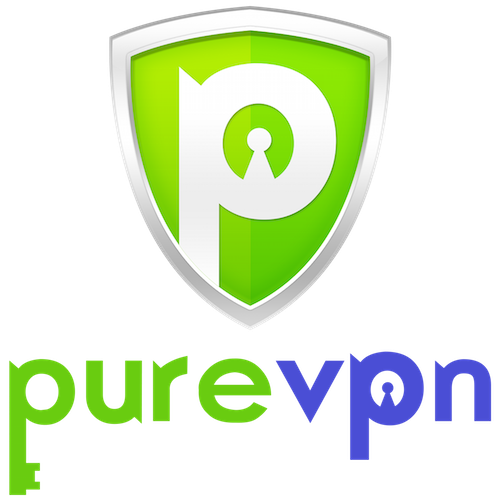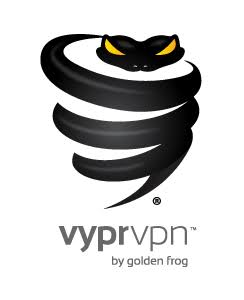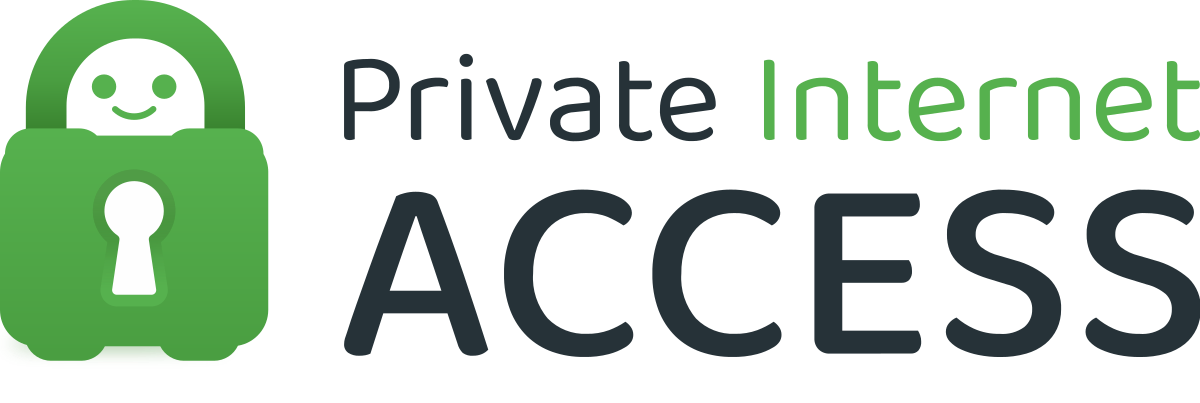Overall Best VPN Services (2024)

- Always evades internet control in the PRC
- Keeps ahead of the Netflix VPN detection algorithm
- Benchmark tests show excellent speed

- Smart DNS service, understands the technology
- Comprehensive security add-on package.
- No data throughput limits and has a no-logs policy

- More US city locations than its rivals
- Includes malware protection
- No-logs policy
1. ExpressVPN

- Always evades internet control in the PRC
- Keeps ahead of the Netflix VPN detection algorithm
- Benchmark tests show excellent speed
ExpressVPN is simple and speedy. It’s also one of the higher-end providers. Ease of use and its awesome features justify the price though. It’s reliable and lag-free with a staggering network of servers in 94 countries. You’ll get access to American Netflix, and if you run into any issues, their support is fast and efficient.
Pros
- Installs on routers
- Simultaneous connection allowance of five devices
- Split tunneling
- Large choice of server location
- Very strong connection encryption
Cons
- One of the most expensive VPN services
- China blocks its main website (but not functionality)
- Live chat support is not always responsive
The software comes with AES-256 encryption, OpenVPN support, SmartDNS, auto-connect, and a kill switch. You can torrent and play online, sans traffic or bandwidth caps, but you can only install it on three devices, which is a tad disappointing if you ask me. That said, the client is sleek and intuitive.
They offer a 30-day refund, and while the $13 monthly plan is expensive, the bi-annual subscription is $60, and the annual is justly set at $100.
ExpressVPN keeps no logs or DNS queries, and even though it’s beyond the 14 Eyes, its headquarters in the British Virgin Islands is somewhat of a gray zone.
Note: ExpressVPN is now offering a reader exclusive: save 49% on my top recommended VPN.
2. Surfshark

- Smart DNS service, understands the technology
- Comprehensive security add-on package.
- No data throughput limits and has a no-logs policy
Surfshark offers all the desirable perks, including military grade encryption, impressive high speeds, the ability to unblock content (websites and regional), 24/ 7 customer support, affordable subscription rates, and a whole lot more.
Pros
- A long list of locations in the USA
- Dodges the Great Firewall of China
- Virtual servers to access India
- Add-on cybersecurity protection package
- Smart DNS option for fast streaming
- Unlimited devices can be connected simultaneously per account
Cons
- 7-day free trial only available on mobile apps
- Not as many VPN servers as NordVPN
- Runs static IP servers but doesn’t sell dedicated IP addresses
- Can’t get into BBC iPlayer or Hulu
Surfshark comes standard with features including a kill switch, multi-hop connections, whitelister, CleanWeb, and a DNS leak protection functionality. Its Whitelister feature helps you during split tunneling to single out apps and sites to bypass the VPN. The kill switch feature comes in handy when you leave your connected device unattended since it’ll disconnect you from the Internet whenever your VPN connection drops.
3. NordVPN

- More US city locations than its rivals
- Includes malware protection
- No-logs policy
NordVPN is hands down the best VPN if you’re after maximum privacy at all times. It sports a nicely designed interface, which is intuitive, and comes with a nifty search feature that makes things as simple as they can be. I like how they sorted their servers into Ultra-fast and Ultra-secure, which is ultra-convenient.
Pros
- A large number of servers
- Threat protection with a proprietary security system called CyberSec
- Split tunneling
- Obfuscated servers for China and other locations where VPNs are discouraged
- No-logs policy
- Automatic wi-fi protection
Cons
- Parts of the server network have poor download speeds
- No servers in India
- Onion over VPN can be slow
NordVPN is rock-solid on privacy with headquarters in Panama, which is well beyond the 14 Eyes. So, you can count on zero logs policy, and software packed with all the bells and whistles that make a VPN robust – OpenVPN, 256-bit AES encryption, a kill switch, DNS leak protection, double encryption, VPN into Tor – you get the idea.
It’s also fast with impressive 830+ server locations, which makes it an excellent choice for P2P file-sharing, online gaming, and HD streaming. There are no annoying bandwidth caps here, and you can connect to Netflix US, BBC iPlayer, or France’s Canal+ if you wish – there’s a server for every need. The double encryption will understandably slow things down.
They offer apps for all popular platforms, and you can use it on up to six devices for $12 a month, $42 per six months, or $70 per year, which is the best value for the money topped with a generous 30-day money-back guarantee.
4. PureVPN

- Excellent client with pre-configured modes for streaming, P2P, privacy
- Kill switch
- Support for wide range of protocols, including OpenVPN
PureVPN has a huge choice of 750 servers in 141 countries and counting. The sheer volume of features, toggles, and tools they provide makes it a top contender for the advanced users. There is a stealth browsing mode, online banking security, secure FTP access, multiple protocols, and more. They have server lists optimized for P2P and video streaming, so switching is easy.
Pros
- Excellent client with pre-configured modes for streaming, P2P, privacy
- Kill switch
- Support for wide range of protocols, including OpenVPN
- Great for newbies and experienced users alike
- Wide server coverage
- Good speeds
- 24/7 support
- Accepts Bitcoin
Cons
- No free trial
- 7-day money-back guarantee comes with restrictions
- No Netflix
- No BBC iPlayer
- Client is not as “one-click” as advertised, and troubleshooting requires technical skills
They’re based in Hong Kong, which is a no data retention haven. Count on 256-bit AES encryption, Open VPN protocol, and a transparent privacy policy – they do log the time when you connect to a server and the bandwidth used. They log nothing other than that but may leak DNS.
PureVPN allows up to five simultaneous connections, supports a staggering amount of platforms from routers and smart TVs to ROKU and Boxee, and unblocks streaming services like Netflix and Hulu. Note that speeds might drop during peak hours though.
As far as pricing goes, it’s one of the most affordable VPNs on the list. They offer a three-day free trial and three plans – $12 monthly, $9 per month on a bi-annual plan, and $3 per month for a two-year subscription. Each comes standard with a 7-day money-back guarantee.
5. IPVanish

- No limit on the number of devices you can connect at the same time
- SOCKS5 proxy, which its main rivals don’t have
- More VPN servers in more US cities to dodge blackouts
IPVanish is great for beginners, but that doesn’t mean it’s lacking in features. It’s robust yet simple to install and even has a Simple Mode. IPVanish doesn’t log your data or connection details, and its client comes complete with a kill switch, 256-bit AES encryption, Open VPN, and SOCKS5 web proxy.
Pros
- Good at dodging blackouts on US sports streaming sites
- A large IP address pool
- Split tunneling available
- Strong IP leak protection
- IPVanish support is available around the clock via chat and email
Cons
- No app for Linux
- No browser extensions
- 30-day money-back guarantee only for the annual plan
- Prices increase after the first subscription period
- No malware or antivirus service
They have hundreds of servers across the world, so the performance is lag-free most of the time. Some US servers won’t unblock Netflix US, but some do – all it takes is a brief chat with tech support.
It works great for HD streaming, P2P torrenting, and online gaming as the bandwidth is not capped. You can have up to five simultaneous connections for $10 per month, or $6.49 per month if you commit to an annual plan. All subscriptions come with a seven-day money-back guarantee.
The drawback is that they’re US-based, so the whole bundle of data retention and surveillance laws apply. On the bright side, they keep no logs.
6. VyprVPN

- Golden Frog, the business behind VyprVPN also runs a gaming platform
- VyprVPN pioneered obfuscation techniques and they have always worked well
- VyprVPN’s no logs policy is confirmed by an independent audit
VyprVPN is a powerful contender if you’re after performance and security. It boasts great speeds due to a staggering network of 700+ serves and more than 200K IP addresses. They own and manage their servers, which translates into reliable uptime, lag-free performance, top-notch support, and great speeds. Add in unlimited bandwidth and P2P support, successful handling of Netflix and Steam geo blocks, and you can check all your VPN must-have features right off the bat.
Pros
- Dodges detection, even in China
- Simultaneous connection allowance of ten devices
- Split tunneling
- Large choice of VPN server locations
- Can unblock a lot of premium streaming services
Cons
- One of the most expensive VPN services
- No VyprVPN app for Linux or Chrome OS
- No browser extensions
- Can’t get into Disney+, ABC, NBC, or Channel 4
VyprVPN comes with a sleek cross-platform client, Open VPN, AES-256 encryption, a proprietary Chameleon technology, VyprDNS, and zero-logs policy, which is a rather impressive list. They’re also based in Switzerland, which means pro-privacy laws.
Unlike many other providers, VyprVPN offers no money-back guarantee, but you can test their service for free for three days. They have two plans that you can have billed on a monthly or annual basis. Basic allows up to three simultaneous connections and kicks in at $60/year if billed annually, and $120/year if billed monthly.
Premium allows up to five simultaneous connections and costs $80/year if billed annually or $155.4/year if billed monthly. It also ships with Chameleon technology for throttling and defeating geo blockades, a kill switch, and other advanced features.
7. Private Internet Access

- More locations in the USA, aims to provide a server in every state
- Makes excluding apps and sites from the VPN very easy
- Real customer service, not just a chatbot
Private Internet Access, or PIA, is a top performer overall, and one of the cheapest for that matter. It’s also one of the most fully-fledged VPNs out there, with 3K+ servers worldwide and reliable, no-lag performance.
Pros
- PIA is one of the few VPNs to have a server in China
- Security features include malware, tracker, and ad blocker
- Good choice of dedicated IP address locations
- Antivirus add-on
- A strong no logs policy
- Easy to use VPN app functionality
Cons
- Can’t get into Amazon Prime or Hulu
- Doesn’t state how many servers it operates
They deploy the solid 256-bit AES encryption and support OpenVPN protocol. You can count on ad and malware blocking while the client is intuitive and packed with customizable settings. They enforce no restrictions on P2P or bandwidth and allow up to five simultaneous connections.
You can stream and play to your heart’s content, but you won’t be able to unblock Netflix US. They’re based in the US, which may be a turn-off if you’re privacy-paranoid, but they keep no logs and let you pay anonymously.
All plans are backed by a 7-day money-back guarantee and are wallet-friendly at $7 monthly, $37 bi-annual, and $40 annual subscription.
What is a VPN?
In layman’s terms, a VPN hides your real IP address by assigning you a different IP address as you connect to one of the provider’s servers. That way, you can pretend you’re someplace else, or spoof. Your traffic is encrypted between your device and the VPN server so that your real ISP can’t peek into your online activities.
Do you need a VPN?
- Do you value your privacy?
- Do you travel a lot and frequently use public Wi-Fi?
- Do you feel like you’re missing out on Netflix or Hulu?
- Do you miss BBC iPlayer when traveling outside the UK?
- Are you running into issues with censorship?
- Is mass surveillance in your country driving you bananas?
If the answer to any of the above questions is yes, you need a VPN. Hackers, state surveillance, censorship, copyright laws, geo-blocks – a myriad of hazards can be avoided if you use a VPN.
Think of every time you shop online, the passwords you’re typing, the credit card details you’re throwing into the digital vortex – all that data is vulnerable to cyber crooks preying on the unencrypted pieces of your life.
VPNs are also essential for anyone living, working, or traveling to countries with severe censorship, copyright, and surveillance laws like Germany, France, the UK, China, Russia, or the Arab Emirates.
You don’t have to be a political dissident or torrenter to need a VPN. You just need to face the unjust geo blocks imposed by streaming services like Netflix and Hulu or realize you’re locked out of your favorite shows just because you’re outside of the US.
VPNs keep you safe, open your digital boundaries and give you granular control over how you appear online. In a perfect world, privacy online should be the default for every program we use, but in the real world, the Internet is the wild west.
So, with a VPN:
- Your Internet Service Provider can’t tell what you’re doing online
- Hackers preying on you on public Wi-Fi won’t be able to intercept your data
- You can bypass censorship blocks
- You avoid intrusive surveillance
- You get to enjoy your favorite shows, music, and gaming wherever you are
Keep in mind that if you download malicious files while using a VPN, you only have yourself to blame. You still need to use common sense, even if your browsing is protected by a VPN.
My criteria for best VPN services
The top of the crop providers must meet several key criteria to make it on my list:
- Support OpenVPN and use AES-256 encryption, preferably with a kill switch and a couple of nifty tweaks for advanced users
- Be cross-platform so you can run them on desktop and mobile
- Be easy-to-use and intuitive because not everyone is a geek
- Have a flexible payment structure, offer a refund guarantee or a free trial
- Have a no-logs policy and no-fluff, transparent ToS
- Offer high speeds and excellent performance
- Allow P2P without capping bandwidth or traffic.
Best VPN services: Considerations
1. Paid vs. Free
There’s a reason why all these VPNs are paid. Providing encryption and VPN services to millions of users is a resource-intensive work that requires servers across the world. A free VPN might be enough for something minor like checking foreign news occasionally. If you need a VPN on a regular basis, however, you’re better off with a reliable paid service.
Free VPNs are more likely to leak your data, provide weak encryption, or worse, collect and trade your personal details. Some trustworthy providers offer free but limited service as a way to attract more customers, and I’ve compiled a list of these, too.
2. Know your laws
When choosing your VPN, do your research and mind the legal aspects. Countries like Germany, France or Japan are cracking down on copyright infringement, while the members of the 14 Eyes treaty have draconian data retention laws and extensive surveillance. So, if you’re looking to maximize your privacy, you might want to avoid connecting to servers in those countries.
3. Server locations
See if the plan you want to invest in offers ample server coverage in the region of your interest. Don’t just buy because a plan offers 300 servers. Sometimes, fewer servers in meaningful locations ensure far better performance.
4. Simultaneous connections
In most cases, VPNs offer 3-6 simultaneous connections per user so you can use it from both desktop and mobile. Most providers can tell if you’re hogging resources by allowing your entire family to stream and torrent at the same time, which can get you in trouble.
5. Read ToS, privacy policies, and pricing
Whereas most providers say they log nothing, that’s not always the case. Some record very little data like the day you subscribed, the amount of data you’ve consumed, and delete those logs when you end the session. Other providers log your IP address, the servers you used, and store those logs. If they’re based in the US, UK, or any other country with data retention laws, they can be compelled to hand over that data to law enforcement.
Also, study the pricing structure carefully. Some very cheap deals might not include taxes, or be cheap only during the first month. Also, a refund policy may have prohibitive restrictions, so a deal that appears wallet-friendly upon first look may not always be a good bargain.